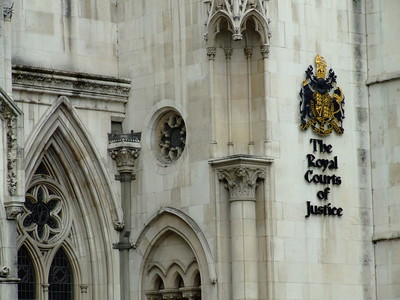
The Attorney General has the power to refer to the Court of Appeal sentences for certain offences which they believe to be unduly lenient. This is sometimes called the unduly lenient sentence scheme.
The scheme was established in the Criminal Justice Act 1988 and came into force in 1989. The purpose of the scheme is to correct gross errors.
The Attorney General’s power to refer only applies to serious offences, being those that can only be dealt with by the Crown Court and some other offences specified in an order. In recent years the scheme has been extended to more offences.
Anyone can ask the Attorney General to consider whether a sentence should be referred to the Court of Appeal as being unduly lenient, including a victim, a relative of a victim or a member of the public. The Attorney General will consider whether the sentence is unduly lenient.
If the Attorney General considers that it might be, then they refer the sentence to the Court of Appeal for review. There is a strict 28-day time limit within which the Attorney General is able to refer a sentence to the Court of Appeal.
If the Court of Appeal agrees that the sentence is unduly lenient then it may increase it. The Court of Appeal will only find a sentence to be unduly lenient where it falls outside the range of sentences which the judge, applying their mind to all the relevant factors, could reasonably consider appropriate.
There have been calls for the scheme to be expanded further to include more offences. The Government has said it has no plans to do so.
On the 10th November 2022 the Attorney General published the latest statistics for the scheme:
In 2021, the Law Officers (Attorney General and Solicitor General) received applications for 678 sentences to be reviewed which met the necessary criteria to be considered under the Scheme.
Of these, 151 were referred to the Court of Appeal. The Court agreed that 106 of these sentences were too low and increased the sentences as a result.
Offenders who received increased sentences referred under the ULS scheme in 2021 include Frankie Smith for her role in the death of one-year-old Star Hobson, Ben John for domestic terrorism offences and Thomas Hughes for taking part in the abuse that led to the death of his son, six-year-old Arthur Labinjo-Hughes.
As a firm, we carefully scrutinise all sentences imposed by courts and are ready to advise if there is a risk that the Attorney General will seek to ask the Court of Appeal to intervene.
How can we help?
Here at Broadbent’s Solicitors, we ensure we keep up to date with any changes in legislation and case law so that we are always best placed to advise you properly. If you would like to discuss any aspect of your case, or are in the need of a criminal solicitor, give us a call today on Alfreton: 01773 832 511, Derby: 01332 369 090 and Heanor: 01773 769 891. Moreover, you can complete our online enquiry form where a member of our team will be in contact shortly.
Image credit: “The Royal Courts of Justice” by R/DV/RS is licensed under CC BY 2.0




